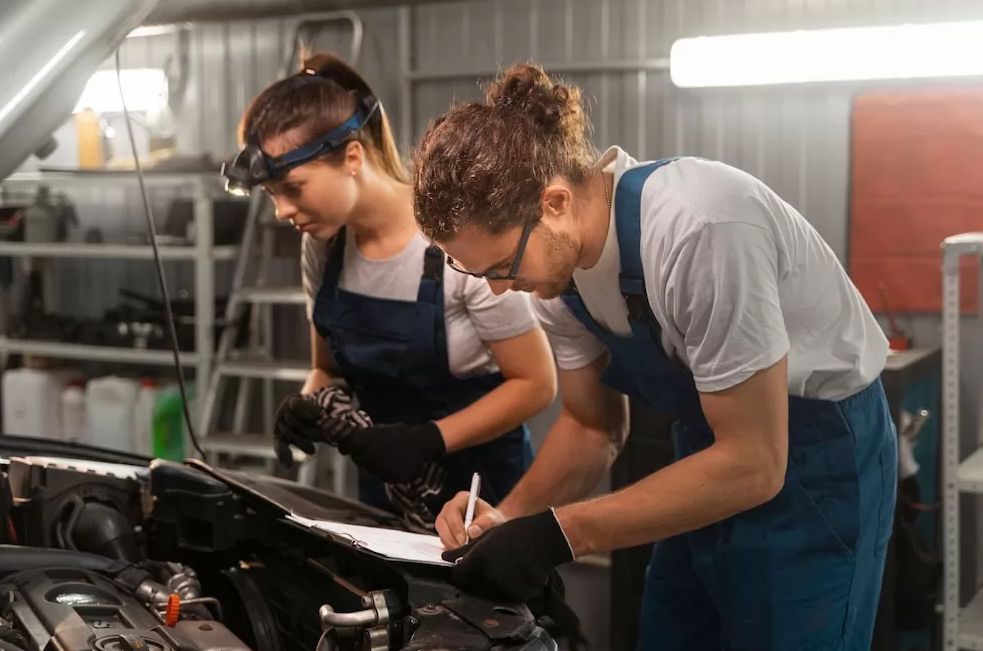How to Build Trust with a New Mechanic

introduction: Why Trust Matters in Auto Repair
Finding a mechanic you can trust is one of the most important relationships you’ll ever build as a car owner. Whether you're facing a routine oil change or a mysterious engine issue, trust determines whether you’ll leave the shop with peace of mind or a sinking feeling in your gut.
For many people, automotive repair is an intimidating world filled with jargon, uncertainty, and the fear of being taken advantage of. Unfortunately, some mechanics have earned a reputation for overcharging, upselling, or doing unnecessary work. However, the vast majority of mechanics are honest professionals doing their best to help customers—and building trust can lead to a long-term, mutually beneficial relationship.
So, how do you build trust with a new mechanic? Let’s explore practical, step-by-step strategies to ensure you’re forming a strong, honest, and transparent relationship.
1. Do Your Homework Beforehand
Before walking into a new shop:
Check Online Reviews
-
Use Google, Yelp, Facebook, or RepairPal.
-
Look for consistency in positive reviews over time.
-
Read both good and bad reviews—how did the shop respond?
Look for Certifications
-
ASE Certification (Automotive Service Excellence) is a mark of professionalism.
-
Membership in professional organizations like AAA or NAPA AutoCare can also add credibility.
Ask Around
-
Personal recommendations are gold. Ask family, coworkers, or friends if they trust their mechanic.
-
Community forums or local Facebook groups can also provide valuable insight.
Review Their Website
-
A professional, updated website may reflect how they run their business.
-
Check for services offered, pricing transparency, and contact methods.
2. Start Small
If you’re skeptical or unsure about a new mechanic, don’t commit to major repairs right away. Test the waters with minor services.
Start With Routine Maintenance:
-
Oil change
-
Tire rotation
-
Brake inspection
-
Fluid top-up
Use this as a chance to evaluate:
-
How they communicate
-
Whether they explain findings clearly
-
Their punctuality and professionalism
Why it matters: Trust is earned, not assumed. A positive experience with a simple job builds a foundation for future interactions.
3. Observe the Shop’s Culture and Cleanliness
The condition of a repair shop speaks volumes:
-
Is the waiting area clean and organized?
-
Do the staff greet you professionally?
-
Are mechanics wearing uniforms or name tags?
-
Is the equipment well-maintained?
While a mechanic’s shop is a working environment, a degree of organization and professionalism shows pride in their work and respect for customers.
4. Ask Smart Questions (And Listen to Their Answers)
Engaging a mechanic in thoughtful conversation shows that you're informed and willing to learn, not just blindly accepting every suggestion.
Questions to Ask:
-
“Can you show me the issue?”
-
“Is this urgent or can it wait?”
-
“What are my options—OEM vs. aftermarket?”
-
“What’s the estimated time and cost?”
A trustworthy mechanic will:
-
Explain issues clearly without overwhelming jargon
-
Show you parts or diagrams
-
Offer options rather than insist on a single expensive fix
Red flag: If a mechanic is dismissive, vague, or annoyed by your questions, it’s a sign to look elsewhere.
5. Request Written Estimates
A reputable shop should provide a written estimate before starting work. It should include:
-
A detailed list of parts and labor
-
Estimated time required
-
Breakdown of costs
-
Warranty information
Don’t sign off on vague or open-ended quotes.
You have the right to know what you’re paying for—and a mechanic who’s transparent up front is more likely to be trustworthy in the long run.
6. Ask to See the Old Parts
This is a classic and effective strategy.
After a part is replaced (like brakes, hoses, or filters), ask the mechanic to:
-
Show you the old part
-
Explain what was wrong with it
An honest mechanic will not hesitate. This builds confidence in their diagnosis and shows you’re paying for real work, not imaginary problems.
7. Get to Know the Team
If you plan to return, learn the names of the people working there—receptionist, service advisor, lead technician.
Say hello, show appreciation, and be polite. Like any professional relationship, trust thrives on familiarity and mutual respect. When staff know you’re a regular, they’re more likely to give you priority service, fair prices, and honest assessments.
8. Keep Records of Everything
Maintain a file with:
-
Work orders
-
Invoices
-
Receipts
-
Warranty documents
This helps in two ways:
-
You stay informed about your car’s history.
-
You can hold the shop accountable if something goes wrong.
If you ever switch mechanics or sell the vehicle, having organized records will be a huge asset.
9. Understand Your Car
You don’t need to become a mechanic, but basic automotive knowledge empowers you. Learn:
-
Your car’s maintenance schedule
-
What warning lights mean
-
Common issues for your make/model
-
Cost range for repairs (check online guides or apps like RepairPal)
Why it matters: A mechanic is less likely to overcharge or cut corners if they know you’re informed.
10. Don’t Be Afraid to Say No
You have the right to:
-
Decline services
-
Ask for time to think
-
Get a second opinion
Example:
If a mechanic says your suspension needs a $1,000 fix but you feel unsure, say:
“Thanks for the information—I’d like to think about it and maybe get another estimate.”
A good mechanic will respect your decision. A bad one will pressure you.
- Art
- Causes
- Crafts
- Dance
- Drinks
- Film
- Fitness
- Food
- Juegos
- Gardening
- Health
- Home
- Literature
- Music
- Networking
- Other
- Party
- Religion
- Shopping
- Sports
- Theater
- Wellness



